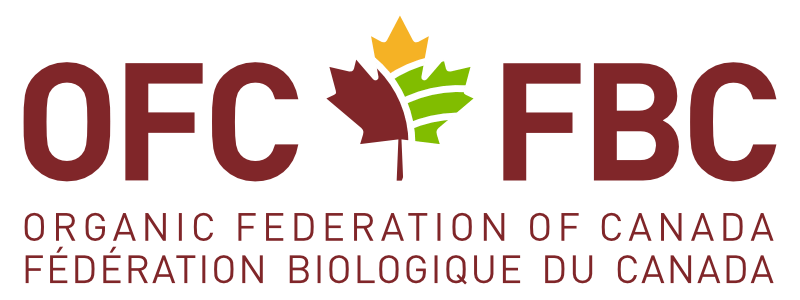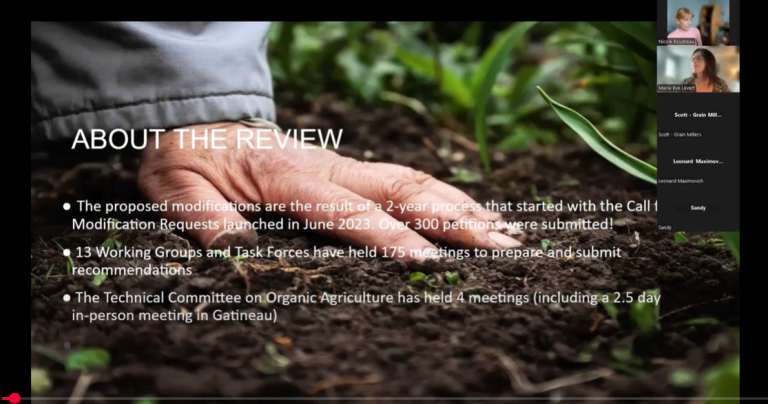January 23, 2026
Review of Canadian Organic Standards
The new Canadian Organic Standards are adopted!
Publication is scheduled in March
The review of the Canadian Organic Standards (COS) has reached its final stage: members of the Canadian General Standards Board’s Technical Committee on Organic Agriculture have adopted the 2026 Canadian Organic Standards as submitted for ballot on October 31, 2025. The final ballot results were announced today, January 23, 2026, to the Technical Committee.
The OFC and the chairs of the working groups and task forces are very pleased with this outcome. The work was carried out in full compliance with the procedures prescribed by the Canadian General Standards Board (CGSB).
December 2025
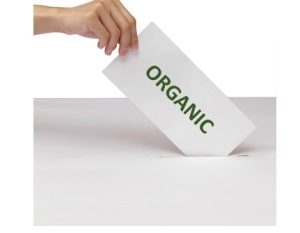
Review of Canadian Organic Standards
The Technical Committee has voted
A major milestone has been reached—the Technical Committee on Organic Agriculture of the Canadian General Standards Board (CGSB) has voted
However, votes and comments must be analyzed before the final version of the COS can be established. The Working Group Chairs will meet to evaluate and resolve comments and submit final recommendations to the Technical Committee members.
More to come on January!
October 2025
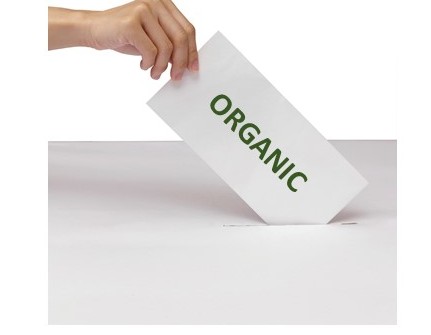
Review of Canadian Organic Standards
30-day voting period begins
The revision of the Canadian Organic Standards (COS) has reached a major milestone: members of the Canadian General Standards Board (CGSB) Technical Committee on Organic Agriculture must vote on the proposed amendments to the 2020 version of the COS. The ballot has been launched on October 31st.
Launched in September 2023, the COS review has progressed smoothly: working groups have met 189 times, and the 60-day public review generated more than 900 comments, which have been resolved by the working groups.
How organic standards are shaped by public comment
During the sixty-day public comment period starting May 30th 2025, members of the public submitted 911 comments about the proposed draft of the Canadian Organic Standards.
When faced with a new or persuasive argument during the public comment period, working groups can re-open discussion. They can possibly amend the proposed text or simply revert back to the 2020 language. Here is a selection of changes made in response to the public comments.
September 2025
Update on the review process
77 proposed changes rejected
by Janet Wallace
During the review of the Canadian Organic Standards, more than 300 petitions were reviewed by working groups and the CGSB Technical Committee on Organic Agriculture. The vast majority of these comments are leading to proposed changes in the standards that can be seen on the following links:
The background of the proposed revisions to the Canadian Organic Standards
In total, 77 proposed changes were rejected (this reflects more than 77 petitions because similar petitions were merged). The Organic Federation of Canada (OFC) decided to publish a description of these petitions along with the reasons they were rejected.
This may be of interest to the people who submitted petitions and are wondering why their proposed changes weren’t incorporated in the draft of the standards that was submitted for public review.
August 2025
A dynamic public comment period
Over nine hundred comments submitted
In May 2025, people were invited to provide feedback on the proposed changes. The 60-day public comment period just ended and now the OFC review team is reviewing the 911 comments that were submitted.
The comments came from various sources, including individual farmers, consumers, animal welfare activists, inspectors and scientists. There were also comments from organizations, such as farming organizations, environmental groups and certification bodies.
The scope of the comments varied greatly. Some people suggested minor editorial and formatting changes, such as correcting spelling and adding italics, while others expressed ideological views (e.g., wanting to “see an end to animal agriculture”).
The OFC is very pleased with this level of participation: it shows that the Canadian organic sector is vibrant, and that stakeholders care for their environment and for the food that they eat.
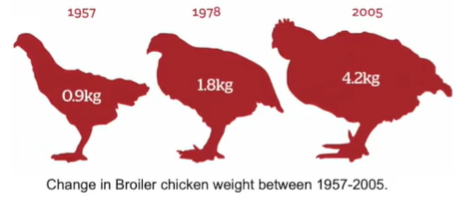
Read more to learn how comments are resolved and about comments issued on glue traps, slow growing chickens, exercise for cows and struvite.

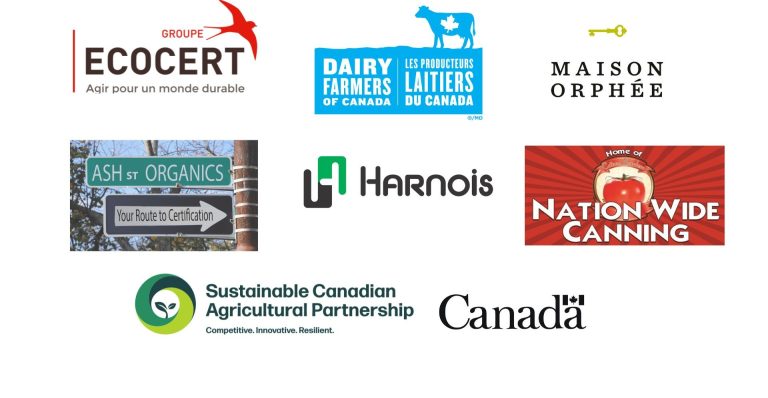
July 2025
The public comment period for the 2025 draft
of the Canadian Organic Standards is closed
On May 30, 2025, the Canadian General Standards Board (CGSB) launched the 60-day public comment period during which all operators and stakeholders are invited to comment on the proposed modifications to the Canadian Organic Standards.
The public comment period is a unique opportunity for producers, processors, certifiers, researchers, and consumers to ensure that the standards remain clear, realistic, and applicable, while incorporating the latest scientific advances and best practices.
The Proposed modifications to the Canadian Organic Standards are presented by the Chairs of the Working Groups
With Nicole Boudreau, Marie-Eve Levert, Allison Grant, François Labelle, Élodie Nadeau, Rochelle Eisen
Are the Canadian Organic Standards your primary work tool?
Compliance to the Organic Standards is a guarantee of integrity and environmental sustainability for consumers.
The OFC is a not-for-profit organisation that is not funded by industry association check-offs. OFC must match the funds provided by AAFC for the standards review and all other projects managed by OFC.
The OFC needs your support to serve the industry and complete the standards review process.
Objective – $175,000
April 5, 2025
The public comment period will be held after the election
The Canadian General Standards Board (CGSB) must wait until the new government is sworn in before launching the 60-day public comment period on the proposed modifications to the 2020 Canadian Organic Standards.
The OFC has provided CGSB with drafts of the Canadian Organic Standards for public review, but the industry will not be able to submit its comments until the review period is launched by CGSB in May 2025.
But the industry’s patience will be rewarded: the OFC is breaking new ground and will provide operators and stakeholders with a document containing rationales for each of the proposed changes to the COS.
Stay tuned!
February 26, 2025
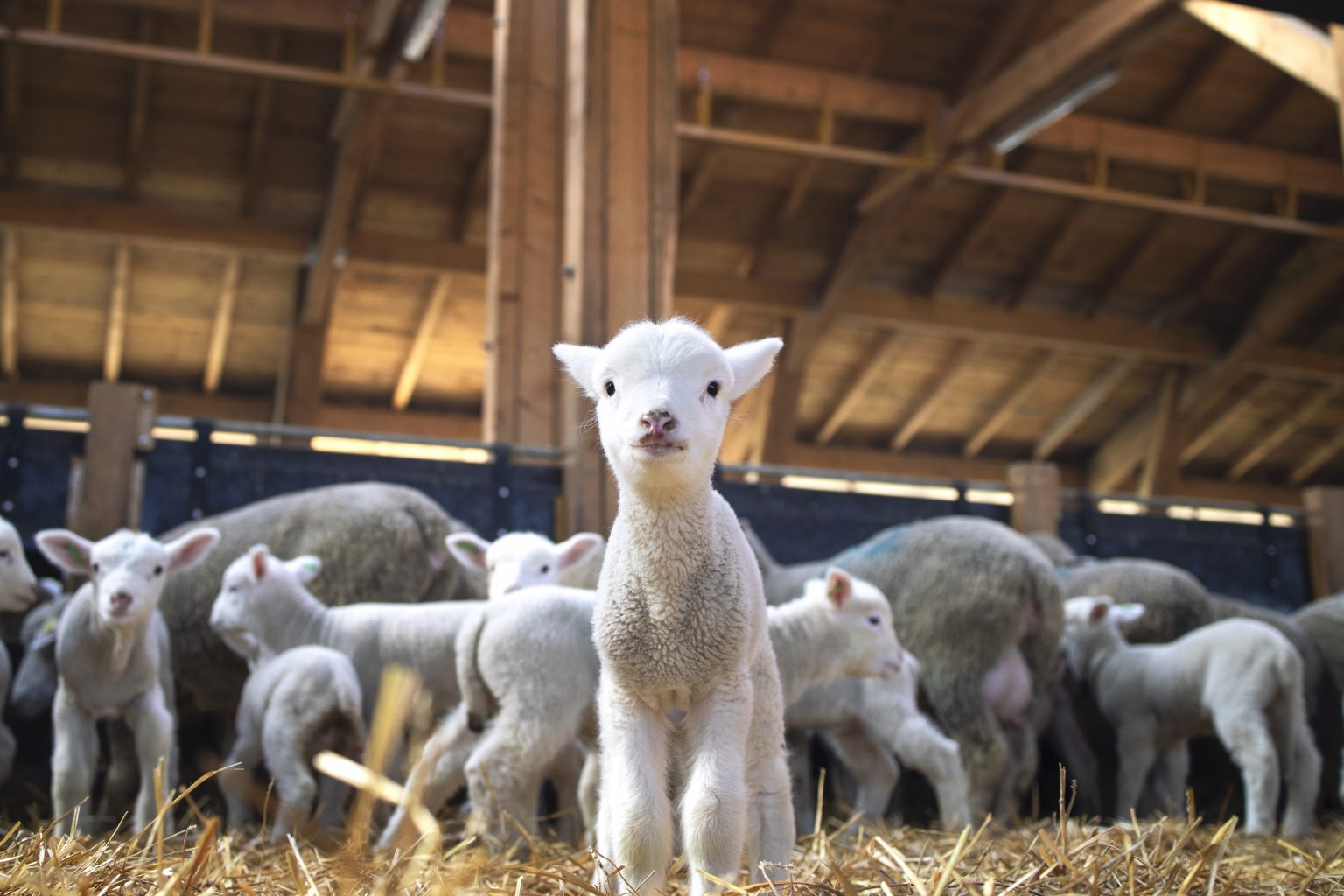
Physical alterations in livestock
A sensitive issue
One of the foundations of organic agriculture is animal welfare. So, an important component of the ongoing review of the Canadian Organic Standards is checking the livestock requirements to ensure that organic farmers go above and beyond in terms of treating animals humanely.
By default, physical alterations are prohibited. However, in certain situations when physical alterations can improve animal welfare, the standard specifies what justifications are acceptable and how the practice can be done in the most humane way possible. Read more
January 27, 2025
Some rejected petitions
What is NOT changing in the Canadian Organic Standards
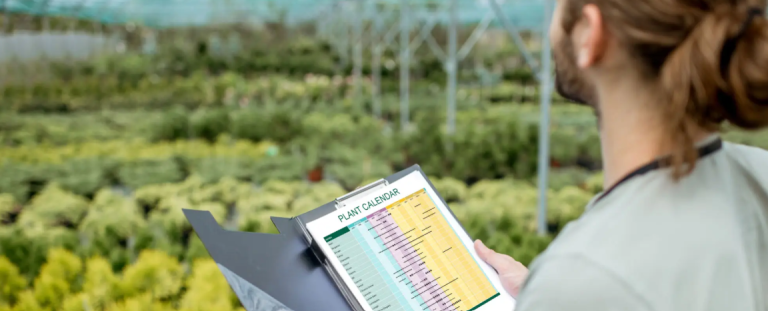
by Janet Wallace
In 2023, farmers, processors, activists and consumers submitted more than 300 petitions for changes to the Canadian Organic Standards (COS). Many of the petitioned changes have been accepted by the CGSB Technical Committee on Organic Agriculture (TC), either as proposed or with modifications; these changes will be submitted to public in the spring of 2025.
Sometimes a proposal to change one subclause led to a close examination of several related clauses, which, in turn, led to a cascade of changes. A number of petitions, however, were completely rejected.
December 17, 2024
Tillage, struvite, livestock conditions, palm oil, insects, bioviversity in the sugar bush, fairness
A variety of topics discussed
by the Technical Committee in November
By Janet Wallace

In November 2024, members of the Canadian General Standards Board (CGSB) Technical Committee on Organic Agriculture (TC) met in Ottawa for three days to discuss proposed changes to the Canadian Organic Standards. Below are just a few of petitions addressed at the meeting.
In the Spring of 2025, a draft of the proposed changes will be released for public comment.
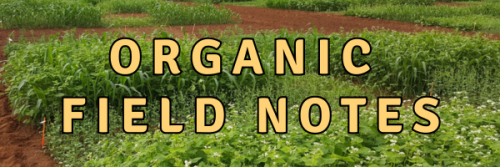
Science with impact!
Knowledge and technology transfer (KTT) is an important part of Organic Science Cluster 4
OFC is pleased to present a video on organic vineyards, a podcast on phosphorus, and multiple articles on the research activities of Organic Science Cluster 4.
20 novembre 2024
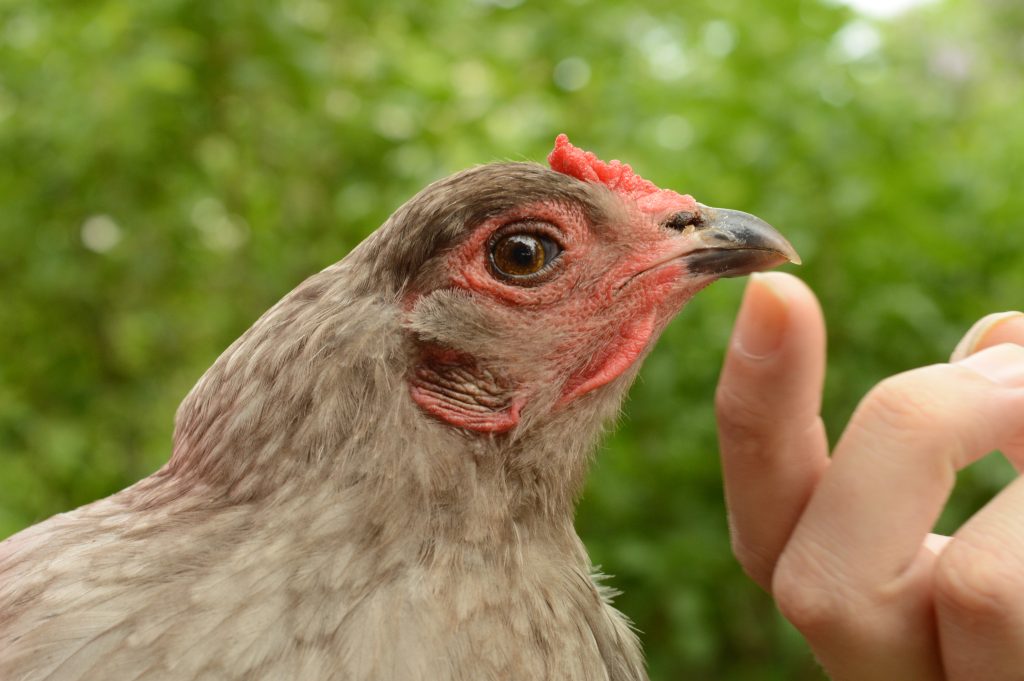
Review of the Canadian Organic Standards
Finding a humane approach
to physical alterations in livestock
By Janet Wallace
While revising the Canadian Organic Standards, the Livestock Working Group aims to ensure that organic livestock have the most humane living conditions possible. At times, using unpleasant practices, such as castration and tail docking, might be required to ensure animal welfare.
According to Clause 6.6.4 in the standards, “Physical alterations are prohibited, unless they are essential for animal health, welfare or hygiene, for identification or for safety reasons.” It continues to specify restrictions on various practices while also requiring that “Physical alterations shall be carried out in a manner that minimizes pain, stress and suffering.”
While starting to address a couple petitions to restrict specific physical alterations, the Livestock Working Group realized this section of the 2020 Standards was a bit confusing and decided to review the whole issue – all physical alterations for all types of livestock.

Organic sector meets parliamentarians
for federal government support
organic growth in Canada
At a meeting with Canadian parliamentarians organized by the Canada Organic Trade Association (COTA) on November 18 in Ottawa, the sector emphasized its important contribution to achieving the government’s environmental and sustainable development objectives.
In order for the Canadian organic sector to remain competitive and benefit from support comparable to that provided by the United States and the European Union, the Canadian government must make strategic investments and integrate organic production into its economic growth program.
For more information:
Investing in Organics: Strengthening Canada’s Economy, Climate Resilience, and Communities
Improved data needed to fuel economic growth in organic sector
October 20, 2024
Phosphorus on organic farms – from struvite to peecycling
When crops are harvested and sold, the phosphorus contained in the plant material leaves the farm and must be replaced. Research on organic farms has found that “in most cases more P is removed with the products than applied as fertilizer leading to reductions in plant-available soil P which threatens the long-term sustainability of organic farming systems.”
As a source of phosphorous, struvite is currently permitted for organic production but only if it is made from “plant and plant by-products or livestock manures,” not from human wastewater.
Under the current review of the Canadian Organic Standards, the Technical Committee on Organic Agriculture is currently considering a petition to permit struvite made from municipal wastewater, the only form of struvite commercially available in Canada right now.
September 27, 2024
A 5-hour meeting of the CGSB Technical Committee held on September 16, 2024
Biodiversity and animal welfare on the agenda
Protection of native ecosystems, use of treated fence posts, clarification on crop rotations, biodiversity of the maple forest, companionship for dairy calves and many other welfare issues were presented to the voting members of the Technical Committee.
August 15, 2024
Survey – Results
Should the Canadian Organic Standards
contain requirements for social justice?
“If you want to either kill the organic certification regime for small-medium farmers, or drive organic farmers out of business, this is a sure-fire way to do it,” wrote one farmer. “Employment requirements and standards belong in Canada’s existing employment standard laws and regulations.”
July 17, 2024
SURVEY
Should the Canadian Organic Standards contain requirements for social justice?
It’s fair to say (pun intended) that social fairness is a worthy goal,
but is it practical to include such requirements in the standards?
The article Should we inspect working conditions on organic farms to assess social fairness? summarizes the debate over introducing requirements about social justice in the Canadian Organic Standards.
The OFC needs to hear your opinion. Please respond to our survey!
June 5, 2024
The fundraising campaign to finance the revision of the Canadian Organic Standards is launched!
Supporting the revision of our organic standards is your best investment in sustainable food production!
Visit the sponsorship page to select what you want to contribute to the review and to have your logo featured as a convinced supporter of organic agriculture!
The recipe for a successful standards revision?
Competent people, an active commitment, patience and an adequate budget!
Discussions on changes to the Canadian Organic Standards are underway!
Some modifications proposed to the Organic Standards
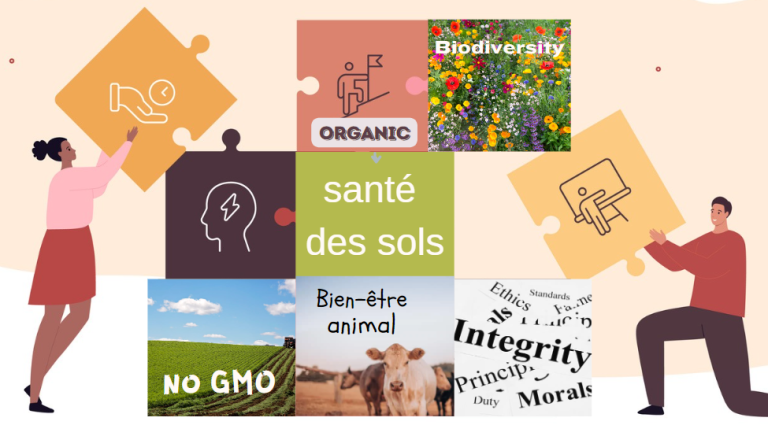
April 29, 2024
Work on the 2025 revision of the Canadian Organic Standards (COS) is progressing: the first meeting of the Canadian General Standards Board’s Technical Committee on Organic Agriculture (TC) has been held on April 8, 2024.
OFC highlights the contribution of working group and task force members to the revision of the COS: 61 2-hour meetings have been held since November 2023, totalling 1458 hours of attendance by the 120 members of these groups.
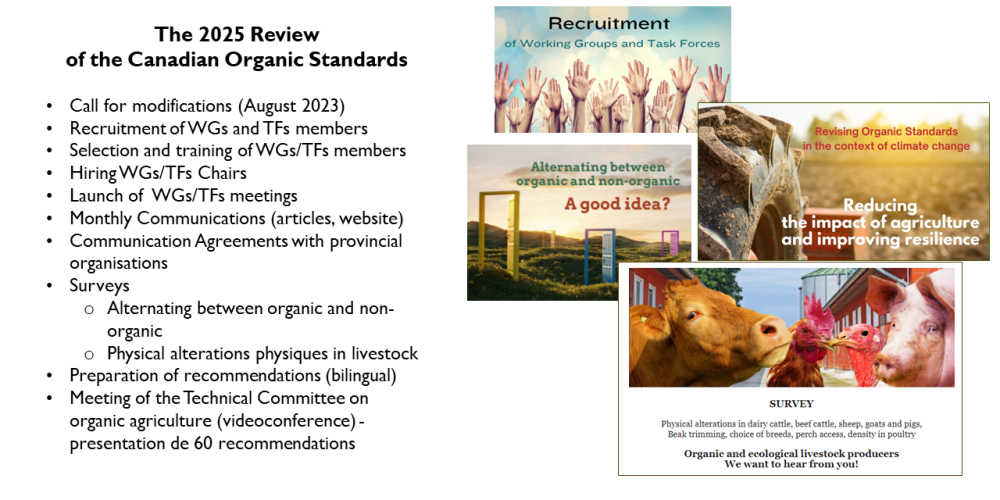
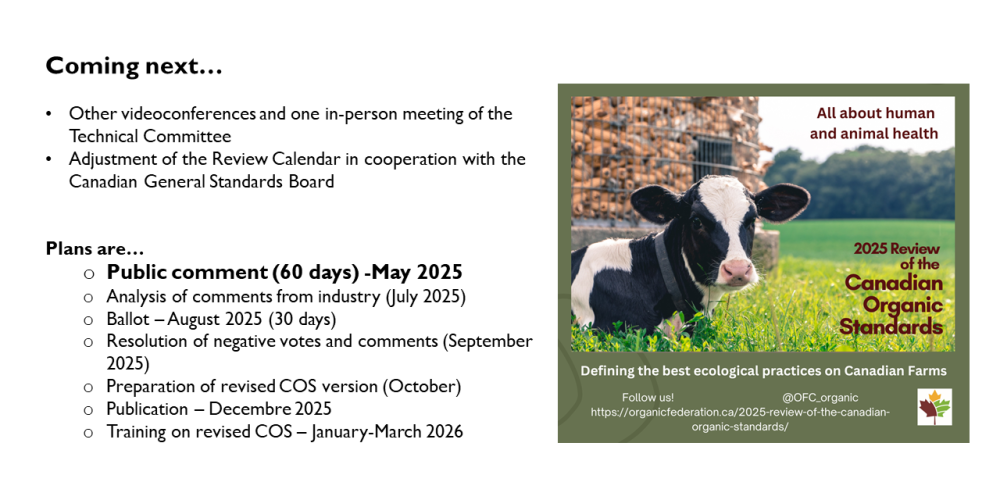
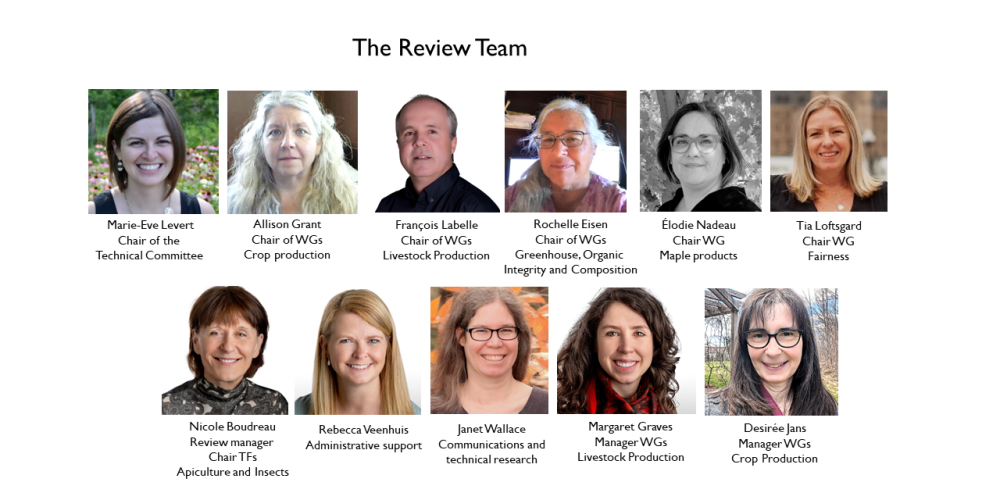
March 26, 2024
Discussion around the use of guano in organic production systems – good or bad?

Guano, organic fertilizer or trigger for war and pandemic’s?
Guano, a traditional organic fertilizer, might soon be banned from Canadian organic production. During the review of the Canadian Organic Standards (COS), working groups re-examine what substances are permitted in the context of the latest research.
After being used by farmers for centuries, the use of guano is now in question. What has changed?
February Updates – Review of the Canadian Organic Standards
February 28, 2024

Government of Canada announces investment in standardization of organic agriculture and agri-food products
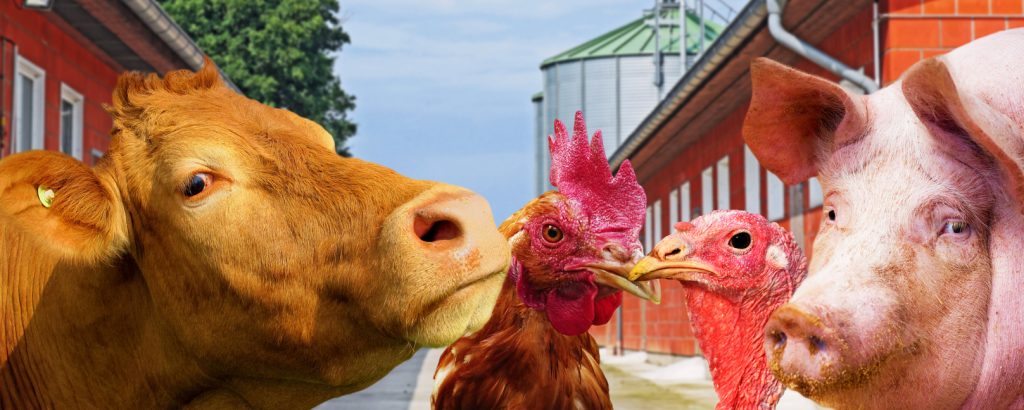
SURVEY – We want to hear from you!
Physical alterations in dairy & beef cattle, sheep, goats and pigs
Beak trimming, breeds, perch access, density in poultry
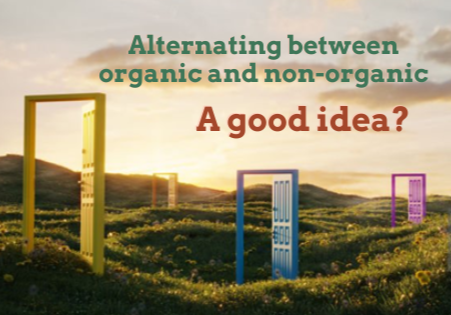
YO-TO ORGANICS?
The Canadian Organic Standard’s ban on alternating organic and non-organic production needs to be clarified or changed.
Read on to discover
what organic stakeholders feel about this issue.
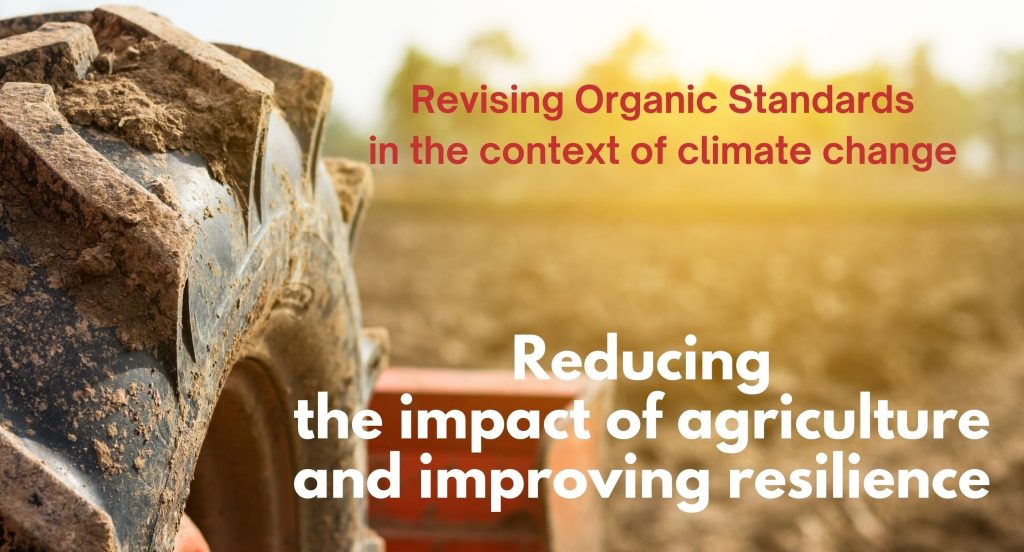
January 30, 2024
Revision of the Canadian Organic Standards
A fabulous teamwork
The work of revising the Canadian Organic Standards goes smoothly, thanks to the work of the chairs of the working groups and task forces, the managers who provide administrative and logistical support (planning meetings, keeping minutes), and the research consultants (who provide scientific background on issues related to petitions and compare our standards with those of our trading partners).
And, of course, thanks to the active participation of the volunteer members of the working groups and task forces.
To date, a total of 29 meetings have been held by 10 working group and task forces (WG/TF) to analyze petitions for changes that have submitted by the industry and other organic stakeholders and to make the recommendations that will be sent to the TC.
WG/TF members have been steadfast in their commitment to preserve the integrity of organic products. However, they need to determine how to apply organic principles realistically.
“The members of the WG/TF discuss with conviction. They are interested, motivated and concerned: this involvement confirms that, although a young sector, Canadian organics is already built on solid foundations that are beneficial to the Canadian environment,” comments Nicole Boudreau, supervisor of the review work.
The list of working group and study group members can be found here. Read more
Additional information
The list of the voting members of the CGSB Technical Committee
Reducing the impact of agriculture and improving resilience, the complete version of the article, by Janet Wallace
Greenhouse gas reduction measures and organic farming, a comprehensive guide for the Union des producteurs agricoles (UPA) to illustrate how the Canadian Organic Standards (COS) can be amended to include both measures to reduce greenhouse gases and measures to adapt to climate change.
______________________________________________________________
December 7, 2023
If an organic farmer violates the organic standards by, say, spraying a prohibited substance, what happens?
The farm loses its organic certification immediately and the field must go through a three-year transition period. But then what?
This question is being debated by the people entrusted with reviewing the 2020 Canadian Organic Standards (COS). Currently, the COS states “Production methods shall not alternate between organic and non-organic on a production unit (5.1.7).”
The exception is the rare situation where prohibited substances are required as part of a mandatory government program.

In this case, non-sprayed parts of the operation could retain certification provided the farmers contact their CB immediately as stated in 4.4.6. The affected area would lose certification and, depending on the exact circumstances, undergo a three-year transition.
Why allow switching from organic to non-organic? Why oppose switching?
Read more and answer our survey and this issue.
Who’s Who in the COS Review
A look behind the scenes
to learn who is shaping the future
of organic standards in Canada
The review of the Canadian Organic Standards (COS) has begun. For the next two years, volunteers from across the country will be reviewing the current standard, analyzing petitions for changes and discussing what should and should not be permitted in organic production.
Click here to read how Working Groups and Task Forces are created and to meet the Chairs who will lead them.

Rabbits shall have space to run, hop and dig, and to sit upright on their back legs with ears erect. (6.14.3 – 32.310)
WANTED
Organic rabbits are orphans. The Livestock Working Group is looking for organic rabbit producers or animal welfare experts in rabbit farming.
Please contact OFC –info@organicfederation.ca
to join the working group responsible for section 6.14 of the COS – Additional requirements for rabbits.
October 11, 2023
Discussion Topics of the Review
A diversified menu: from insect care to struvite, parallel production to sprout inhibitors
The Canadian Organic Standard (COS) is more than just a set of rules and restrictions governing what can be labelled as certified organic in Canada: it is an ever-evolving guide to organic production and processing. Canada’s Canadian General Standards Board (CGSB), which publishes the standard, requires a review every five years. This provides a great opportunity for organic farmers, industry representatives, academics, activists and consumers to suggest ways to improve the standard.
Read more on InfoBio.
September 13, 2023
List of proposals
Over 250 proposals for changes were submitted following the launch of the review process in July 2023. Each of these requests will have to be analyzed to determine whether the suggested changes should be incorporated into the Canadian Organic Standards.
The list of proposals as updated on September 13, 2023 can be consulted:
- Proposals for changes to Organic Principles and Management Standards – CAN/CGSB-32.310
- Proposals for changes to Permitted Substances Lists – CAN/CGSB-32.311
________________________________________________

August 28, 2023
The Canadian Organic Standards (COS) are attracting a great deal of interest: more than 250 requests for changes were submitted following the launch of the review process in July 2023. Each of these requests will have to be analyzed to determine whether the suggested changes should be incorporated into the COS.
Following the procedures of the Canadian General Standards Board (CGSB), the Organic Federation of Canada is now moving on to the next stage:
the reconstitution of the Working Groups (WG) and Task Forces (TF).
These groups will analyze the requests submitted by the industry and make recommendations to the voting members of the Technical Committee on Organic Agriculture (which will decide by ballot on the final content of the 2025 COS).
Read more about responsibilities of the members of the WGs and TFs.
Each person wishing to join a WG or TG is invited to complete
a brief application form describing their expertise and experience
within the Canadian organic industry.
To apply, click on the following link: https://www.surveymonkey.com/r/MBWGBD9
DEADLINE – SEPTEMBER 14, 2023
_____________________________________________________
August 14, 2023
- 269 modification requests have been submitted as part of the revision of the Canadian Organic Standards (COS). The Lists of Permitted Substances in Crop Production section received the highest number of submissions – with almost 50 requests for modifications.
- In accordance with the procedures of the Canadian General Standards Board (CGSB), the OFC will soon publish the full list of submissions.
- The CGSB is responsible for managing the Technical Committee on Organic Agriculture (TC). Any organization or individual concerned by TC decisions and having expressed an interest in standards development is eligible for TC membership if it can demonstrate its ability to participate actively in the review process. Any organization wishing to acquire voting member status must contact the CGSB by August 24, 2023.
- The OFC is responsible for managing the working groups. Recruitment of working group members will take place at the end of August.
- In order to fund the COS review, the OFC has submitted an application for funding under Agriculture and Agri-Food Canada’s (AAFC) Agri-Assurance Program. The OFC expects to receive news of its application in September. In the event of a positive response from AAFC, OFC will launch a fundraising campaign to raise the matching funds required by the AAFC program, which amount to 25% of the budget allocated to the revision project. Stay tuned!

Have your say! (closed)
The Canadian Organic Standards are an evolving document that is modernized every five years to consider and integrate new ecological practices that will enhance soil health and facilitate pest control under certified organic management.
In order to prepare the review of the 2020 Canadian Organic Standards that has to be completed in the fall of 2025, the Organic Federation of Canada invites all organic stakeholders to submit requests for modifications to the Canadian Organic Standards.
DEADLINE – JULY 28, 2023
To submit your request:
- fill a form online for proposing modifications to 32.310 or 32.311; https://docs.google.com/forms/d/e/1FAIpQLSefDFfCsZEvdfCHHBtZ4jZRF5Tu-u5tAPL4gu2H4nZwMh6MYw/viewform
OR
- use the following templates:
- request for modifications to General principles and management standards, please use this template
- request for modifications to Permitted Substances Lists, please use this template
Lorem ipsum dolor sit amet, consectetur adipiscing elit. Ut elit tellus, luctus nec ullamcorper mattis, pulvinar dapibus leo.

